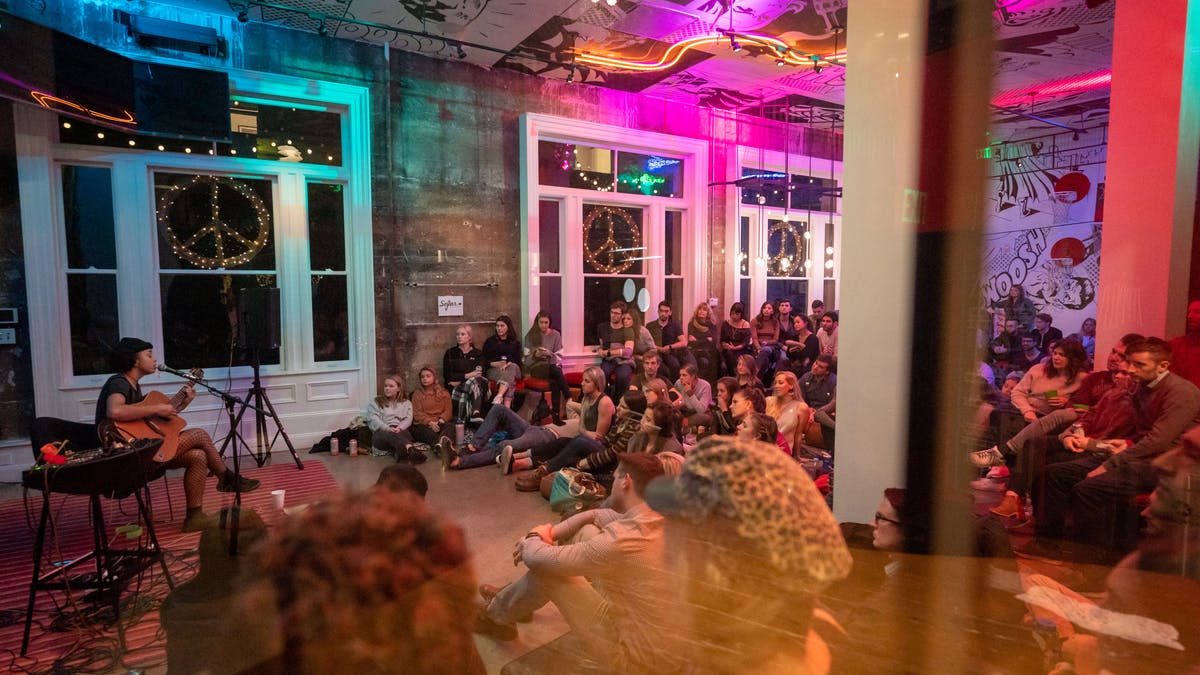Nirvana and Erykah Badu went to Joshua Tree with some fairy dust. That’s how KING ISIS describes themself, and it’s spot on. With a gritty but sultry edge, KING ISIS is mysterious and alluring with a sound that is captivating. Still early in their career, ISIS has already established a presence. We chatted it up with the artist this Black History Month about ancestors, instruments, music, and more.
Sofar: You just curated a Spotify playlist for LGBT & Non-binary individuals; what was unique about that effort?
KING ISIS: Yes, for FOLX health! I don’t make playlists for myself, so it was my first time doing something like that, but I had fun doing it. It was an affirming experience, definitely inspirational to see how many lgbtq+ people are creating unapologetically in the music industry and the diverse range of sounds we are creating.
What is your fondest BHM memory?
Back in grade school, my mom had me and my sister make an A-Z encyclopedia on different Black leaders, innovators, creators, minds, etc. We went to a “good” school, we had little to no exposure to our Black history beyond a brief synopsis of slavery during Black History Month. She taught us that Black people are at the foundation of everything and that every month celebrates us.
We’re not big on putting artists into boxes, but if you had to describe yourself, your sound, and whom you want to metamorphosis into as an artist, what words would you use?
I am a punk rock fairy witch bitch. I want to be that someone you listen to for solace and feel less alone together. Like if Nirvana and Erykah Badu went to Joshua Tree with some fairy dust and just vibed out on something crazy.
 KING ISIS performs Sofar San Francisco, photo by Adam PardeeWould you consider the guitar your spirit instrument?
KING ISIS performs Sofar San Francisco, photo by Adam PardeeWould you consider the guitar your spirit instrument?
My guitar is my best friend. It’s comforting and provides protection, especially while performing. When I don’t have my guitar on stage, I have to readjust to a whole different mindset.
Why did you choose to go by the name King Isis?
I go by King Isis as both a fuck you to gender norms and [to] honor my great-great-grandmother, Omega King, who was one of the first Black opera singers in Chicago.
Since it’s BHM, what do you think your ancestors are most proud of you for?
I think my ancestors would be proud of me for following my dreams and keeping our family’s creativity alive. I hope they can see the tenacity I’m working to build up and the confidence that comes with creating. I hope that they would be proud that I’m still here, existing and breathing, being and smiling.
Interview by Gyasi Williams-Kirtley
Photo credit: KING ISIS, photo by Alison Nguyen





